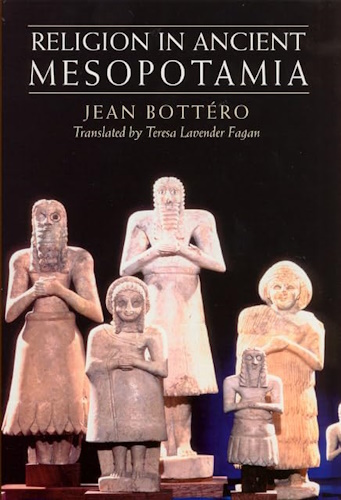

Religion In Ancient Mesopotamia

One of the world's foremost experts on Assyriology, Jean Bottéro has studied the religion of ancient Mesopotamia for more than fifty years. Building on these many years of research, Bottéro here presents the definitive account of one of the world's oldest known religions. He shows how ancient Mesopotamian religion was practiced both in the public and private spheres, how it developed over the three millennia of its active existence, and how it profoundly influenced Western civilization, including the Hebrew Bible.
Paperback: 260 pages
Publisher: University of Chicago Press; 1 edition (September 1, 2004)
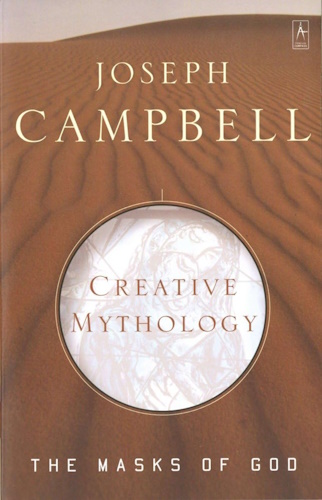

The Masks of God, Vol. 4: Creative Mythology

Explore the power of myth as it exploded from medieval Europe into the modern world
In this fourth volume of The Masks of God — Joseph Campbell's major work of comparative mythology — the pre-eminent mythologist looks at the birth of the modern, individualistic mythology as it developed in Europe beginning in the twelfth century A.D. up through the modernist art of the twentieth century.
The Masks of God is a four-volume study of world religion and myth that stands as one of Joseph Campbell's masterworks. On completing it, he wrote:
Its main result for me has been the confirmation of a thought I have long and faithfully entertained: of the unity of the race of man, not only in its biology, but also in its spiritual history, which has everywhere unfolded in the manner of a single symphony, with its themes announced, developed, amplified and turned about, distorted, reasserted, and today, in a grand fortissimo of all sections sounding together, irresistibly advancing to some kind of mighty climax, out of which the next great movement will emerge.About the Author
Joseph Campbell was interested in mythology since his childhood in New York, when he read books about American Indians, frequently visited the American Museum of Natural History, and was fascinated by the museum's collection of totem poles. He earned his B.A. and M.A. degrees at Columbia in 1925 and 1927 and went on to study medieval French and Sanskrit at the universities of Paris and Munich. After a period in California, where he encountered John Steinbeck and the biologist Ed Ricketts, he taught at the Canterbury School, then, in 1934, joined the literature department at Sarah Lawrence College, a post he retained for many years. During the 1940s and '50s, he helped Swami Nikhilananda to translate the Upanishads and The Gospel of Sri Ramakrishna. The many books by Professor Campbell include The Hero with a Thousand Faces, Myths to Live By, The Flight of the Wild Gander, and The Mythic Image. He edited The Portable Arabian Nights, The Portable Jung, and other works. He died in 1987.
Paperback: 752 pages
Publisher: Penguin Books; Reissue edition (November 1, 1991)
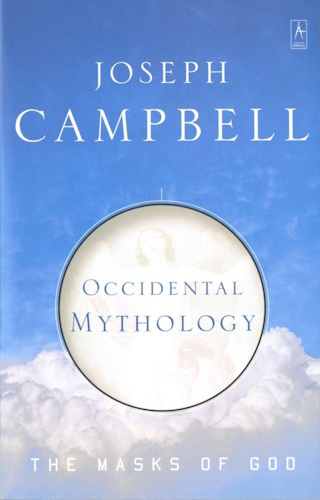

The Masks of God: Occidental Mythology

Explore the power of myth as it flowered in the ancient Near East and the Classical World
In this third volume of The Masks of God — Joseph Campbell’s major work of comparative mythology — the preeminent mythologist looks at the pagan religions of Greece, Rome, and the Celts, as well as the Abrahamic religions — Zoroastrianism, Judaism, Christianity, and Islam. Exploring the West’s shift from female-centered to male-centered mythology, Campbell examines the distinguishing characteristics and the shared root concepts of these mythologies.The Masks of God is a four-volume study of world religion and myth that stands as one of Joseph Campbell’s masterworks. On completing it, he wrote:
Its main result for me has been the confirmation of a thought I have long and faithfully entertained: of the unity of the race of man, not only in its biology, but also in its spiritual history, which has everywhere unfolded in the manner of a single symphony, with its themes announced, developed, amplified and turned about, distorted, reasserted, and today, in a grand fortissimo of all sections sounding together, irresistibly advancing to some kind of mighty climax, out of which the next great movement will emerge.About the Author
Joseph Campbell was interested in mythology since his childhood in New York, when he read books about American Indians, frequently visited the American Museum of Natural History, and was fascinated by the museum's collection of totem poles. He earned his B.A. and M.A. degrees at Columbia in 1925 and 1927 and went on to study medieval French and Sanskrit at the universities of Paris and Munich. After a period in California, where he encountered John Steinbeck and the biologist Ed Ricketts, he taught at the Canterbury School, then, in 1934, joined the literature department at Sarah Lawrence College, a post he retained for many years. During the 1940s and '50s, he helped Swami Nikhilananda to translate the Upanishads and The Gospel of Sri Ramakrishna. The many books by Professor Campbell include The Hero with a Thousand Faces, Myths to Live By, The Flight of the Wild Gander, and The Mythic Image. He edited The Portable Arabian Nights, The Portable Jung, and other works. He died in 1987.
Series: Masks of God (Book 3)
Paperback: 576 pages
Publisher: Penguin Books; Revised edition (November 1, 1991)
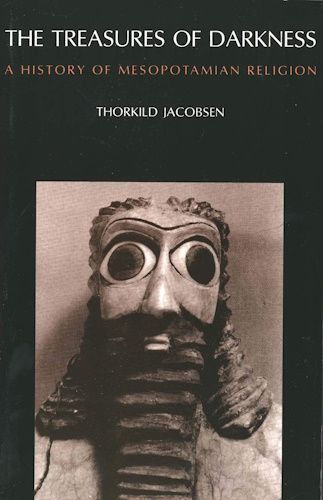

The Treasures of Darkness, A History of Mesopotamian Religion

“The Treasures of Darkness is the culmination of a lifetime’s work, an attempt to summarize and recreate the spiritual life of Ancient Mesopotamia. Jacobsen has succeeded brilliantly. . . . His vast experience shows through every page of this unique book, through the vivid, new translations resulting from years of careful research. Everyone interested in early Mesopotamia, whether specialist, student, or complete layman, should read this book. . . . It is, quite simply, authoritative, based on a vast experience of the ancient Mesopotamian mind, and very well written in the bargain.”―Brian M. Fagan, History
“Professor Jacobsen is an authority on Sumerian life and society, but he is above all a philologist of rare sensibility. The Treasures of Darkness is almost entirely devoted to textual evidence, the more gritty sources of archaeological knowledge being seldom mentioned. He introduces many new translations which are much finer than previous versions. . . . Simply to read this poetry and the author’s sympathetic commentary is a pleasure and a revelation. Professor Jacobsen accepts the premise that all religion springs from man’s experience of a power not of this world, a mysterious ‘Wholly Other.’ This numinous power cannot be described in terms of worldly experience but only in allusive ‘metaphors’ that serve as a means of communication in religious teaching and thought. . . . As a literary work combining sensibility, imagination and scholarship, this book is near perfection.”―Jacquetta Hawkes, The London Sunday Times
“A brilliant presentation of Mesopotamian religion from the inside, backed at every point by meticulous scholarship and persistent adherence to original texts. It will undoubtedly remain for a long time a classic in its field.”―Religious Studies Review
“A fascinating book. The general reader cannot fail to admire the translated passages of Sumerian poetry with which it abounds, especially those illustrating the Dumuzi-Inanna cycle of courtship, wedding and lament for the god’s untimely death. Many of these (though not all) are new even to the specialist and will repay close study.”―B.O.R. Gurney, Times Literary Supplement
Paperback: 273 pages
Publisher: Yale University Press; Revised ed. edition (September 10, 1978)
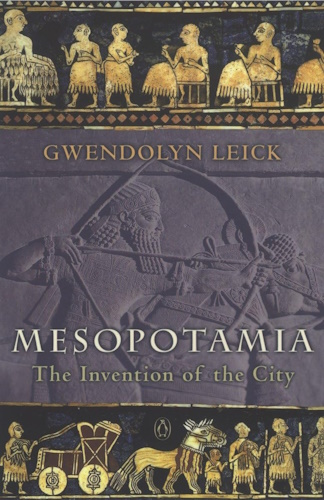

Mesopotamia: The Invention of the City

Situated in an area roughly corresponding to present-day Iraq, Mesopotamia is one of the great, ancient civilizations, though it is still relatively unknown. Yet, over 7,000 years ago in Mesopotamia, the very first cities were created. This is the first book to reveal how life was lived in ten Mesopotamian cities: from Eridu, the Mesopotamian Eden, to that potent symbol of decadence, Babylon - the first true metropolis: multicultural, multi-ethnic, the last centre of a dying civilization.
About the Author
GWENDOLYN LEICK is an anthropologist and Assyriologist. She is the author of various publications on the Ancient Near East, including A Dictionary of Near Eastern Mythology and Sex & Eroticism in Mesopotamian Literature. She also acts as a cultural tour guide in the Middle East, lecturing on history, archaeology and anthropology.
Paperback: 384 pages
Publisher: Penguin Books; 1st edition (June 24, 2003)
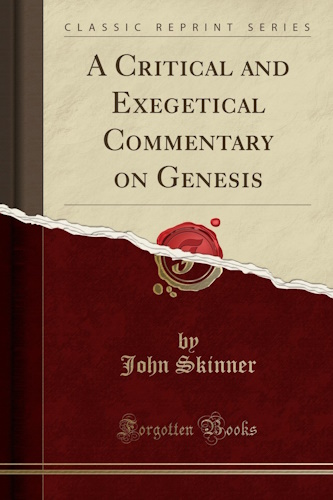

A Critical and Exegetical Commentary on Genesis

Excerpt from A Critical and Exegetical Commentary on Genesis
In conclusion, I have to express my thanks, first of all, to two friends by whose generous assistance my labour has been considerably lightened: to Miss E. I. M. Boyd, m.a., who has rendered me the greatest service in collecting material from books, and to the Rev. J. G. Morton, m.a., who has corrected the proofs, verified all the scriptural references, and compiled the Index. My last word of all must be an acknowledgment of profound and grateful obligation to Dr. Driver, the English Editor of the series, for his unfailing interest and encouragement during the progress of the work, and for numerous criticisms and suggestions, especially on points of philology and archae.
About the Publisher
Forgotten Books publishes hundreds of thousands of rare and classic books. Find more at www.forgottenbooks.com
This book is a reproduction of an important historical work. Forgotten Books uses state-of-the-art technology to digitally reconstruct the work, preserving the original format whilst repairing imperfections present in the aged copy. In rare cases, an imperfection in the original, such as a blemish or missing page, may be replicated in our edition. We do, however, repair the vast majority of imperfections successfully; any imperfections that remain are intentionally left to preserve the state of such historical works.
Paperback: 638 pages
Publisher: Forgotten Books (May 11, 2017)
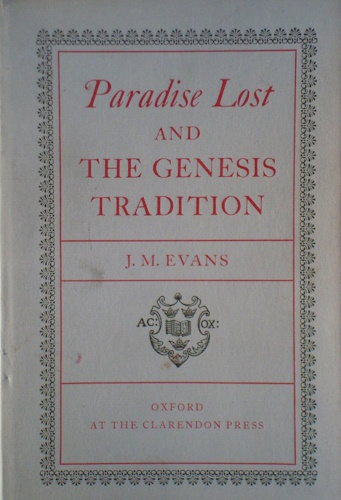

Paradise Lost and the Genesis Tradition

Revised version of author's thesis, University of Oxford, 1963.
Hardcover: 330 pages
Publisher: Oxford University Press (June 1968)
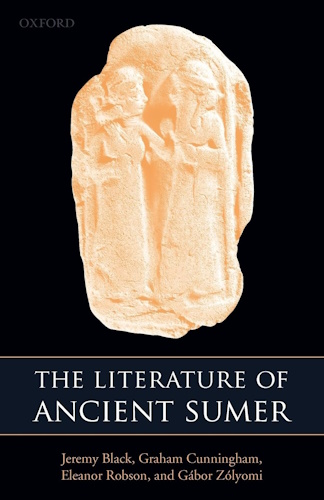

The Literature of Ancient Sumer

This anthology of Sumerian literature constitutes the most comprehensive collection ever published, and includes examples of most of the different types of composition written in the language, from narrative myths and lyrical hymns to proverbs and love poetry. The translations have benefited both from the work of many scholars and from our ever-increasing understanding of Sumerian. In addition to reflecting the advances made by modern scholarship, the translations are written in clear, accessible English. An extensive introduction discusses the literary qualities of the works, the people who created and copied them in ancient Iraq, and how the study of Sumerian literature has evolved over the last 150 years.
About the Author
Jeremy Black was University Lecturer in Akkadian and Fellow of Wolfson College, Oxford. Graham Cunningham is Researcher at the Faculty of Oriental Studies, University of Oxford. Eleanor Robson is University Lecturer in History of Science and Fellow of All Souls College, Oxford. Gábor Zólyomi is Head of the Department of Assyriology and Hebrew Studies, Eötvös Loránd University, Budapest.
Paperback: 440 pages
Publisher: Oxford University Press (June 22, 2006)
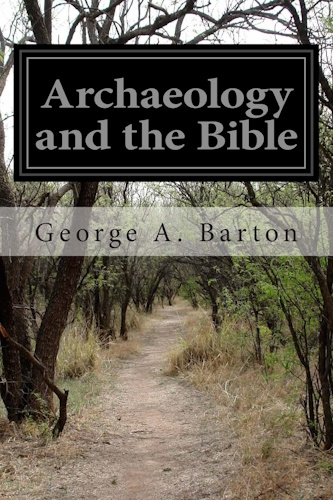

This collection of literature attempts to compile many of the classic works that have stood the test of time and offer them at a reduced, affordable price, in an attractive volume so that everyone can enjoy them.
Paperback: 370 pages
Publisher: CreateSpace Independent Publishing Platform (April 27, 2015)
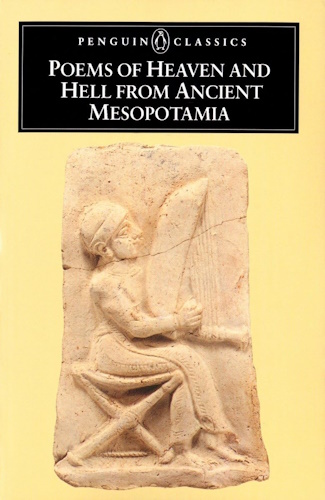

Poems of Heaven and Hell From Ancient Mesopotamia

For more than seventy years, Penguin has been the leading publisher of classic literature in the English-speaking world. With more than 1,700 titles, Penguin Classics represents a global bookshelf of the best works throughout history and across genres and disciplines. Readers trust the series to provide authoritative texts enhanced by introductions and notes by distinguished scholars and contemporary authors, as well as up-to-date translations by award-winning translators.
Paperback: 192 pages
Publisher: Penguin Classics; Reprint edition (June 6, 1971)
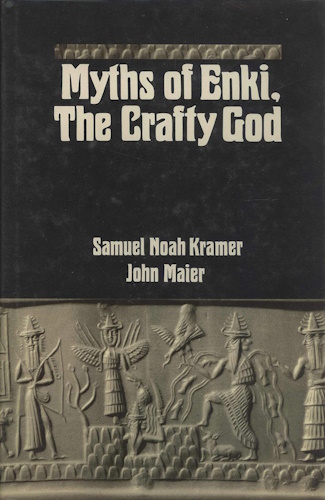

This ambitious and well-researched study brings together for the first time translations of the ancient literature concerning the Sumerian god Enki, one of four gods and goddesses who comprised the highest level of the Sumerian pantheon. The very existence of these writings, which date from the Third Millenium B.C., was unknown until about 100 years ago, when their cuneiform script was deciphered. Since then, it has become apparent that Sumerian literature had a profound and enduring influence on both Biblical and classical Greek literature, and so on the literature of the western world as a whole. Kramer, one of the world's leading sumerologists, has prepared these translations from among the scores of works he has published over the last fifty years; John Maier provides a full interpretive framework that places the translations in their broader comparative cultural context. This rare collection will be of interest to students and scholars in a wide range of disciplines from Near Eastern and Biblical Studies to Mythology and Comparative Literature.
Hardcover: 288 pages
Publisher: Oxford University Press (December 14, 1989)
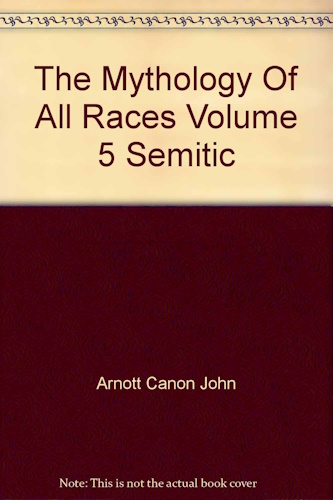
The Mythology of All Races Volume V (Semitic)
Stephen Herbert Langdon was an American-born British Assyriologist. Born to George Knowles and Abigail Hassinger Langdon in Monroe, Michigan, Langdon studied at the University of Michigan, participating in Phi Beta Kappa and earning an A. B. in 1898 and an A. M. in 1899. Following this he went to New York's Union Theological Seminary, graduating in 1903, and then on to Columbia University to obtain a Ph.D. in 1904. Langdon then became a fellow of Columbia in France (1904-1906), during which time he was ordained as a deacon of the Church of England (1905) in Paris. Subsequently, he moved to Oxford University in England (where he was a member of the Jesus College Senior Common Room though not a Fellow), becoming a Shillito reader in Assyriology in 1908, a British citizen in 1913, and after the retirement of Archibald Sayce, a Professor of Assyriology in 1919. However, in 1916, when World War I had diminished the size of his classes in England, he spent some time at the University of Pennsylvania Museum of Archaeology and Anthropology, serving as the curator of its Babylonian section.
Hardcover: 454 pages
Publisher: Archaelogical Institute of America (Marshall Jones Company) (January 1, 1931)
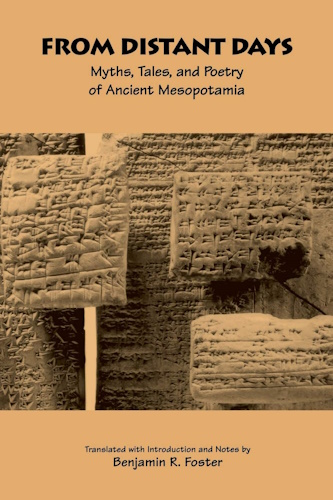

From Distant Days, Myths, Tales, and Poetry of Ancient Mesopotamia

A selection and abridgment of Benjamin Foster's comprehensive, two-volume work on Babylonian and Assyrian literature, Before the Muses. This paperback edition is well-suited for college courses in Biblical Studies, Classical Studies, Religious Thought, Mythology, or Comparative Literature. Among the many compositions included are: Epic of Creation; Story of the Flood; When Ishtar Went to the Netherworld; How Nergal Became King of the Netherworld; How Adapa Lost Immortality; Etana; the King without an Heir; Anzu the Bird Who Stole Destiny; How Erra Wrecked the World; Legends of Sargon of Akkad; Legend of Naram-Sin; Tukulti-Ninurta Epic; Nebuchadnezzar and Marduk; Tiglath-Pileser and the Beasts; The King of Justice; Letters from Gods; Marduk Prophecy; Oracles to Assyrian Kings; Prayers to the Gods; Coronation Prayer for Assyrian Kings; Sargon II for His New City; Assurbanipal Pious Scholar; Nebuchadnezzar II for His Public Works; Diviners' Prayers; Dialogue between a Man and His God; Poem of the Righteous Sufferer; A Sufferer's Salvation; The Babylonian Theodicy; Who Has Not Sinned?; The Piteous Sufferer; Elegy for a Woman Dead in Childbirth; Love Charms; Love Lyrics; Ishtar at the Tavern; The Faithful Lover; At the Cleaners; The Poor Man of Nippur; Why Do You Curse Me?; The Jester; The Gilgamesh Letter; The Dialogue of Pessimism; Land for the Birds; Counsels of Wisdom.
Paperback: 446 pages
Publisher: CDL (March 1, 1995)
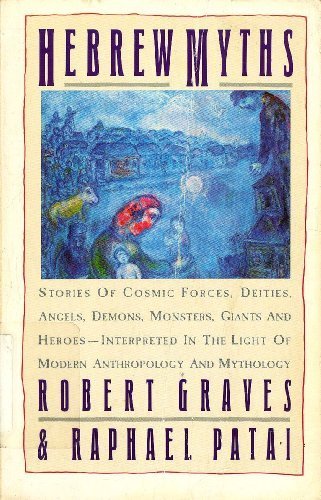

Hebrew Myths: The Book of Genesis

Examines selected Biblical passages for their mythological references and their anthropological value
Paperback: 311 pages
Publisher: Anchor; 1st Anchor Books ed. 1989 edition (July 1, 1989)
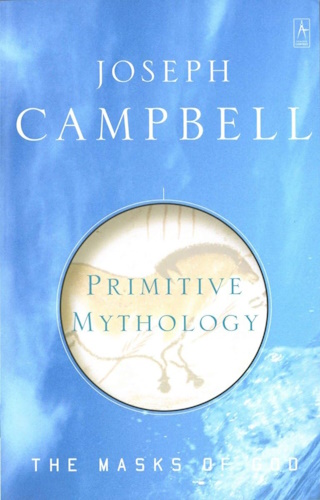

The Masks of God: Primitive Mythology

The author of such acclaimed books as Hero With a Thousand Faces and The Power of Myth discusses the primitive roots of mythology, examining them in light of the most recent discoveries in archaeology, anthropology, and psychology.
About the Author
Joseph Campbell was interested in mythology since his childhood in New York, when he read books about American Indians, frequently visited the American Museum of Natural History, and was fascinated by the museum's collection of totem poles. He earned his B.A. and M.A. degrees at Columbia in 1925 and 1927 and went on to study medieval French and Sanskrit at the universities of Paris and Munich. After a period in California, where he encountered John Steinbeck and the biologist Ed Ricketts, he taught at the Canterbury School, then, in 1934, joined the literature department at Sarah Lawrence College, a post he retained for many years. During the 1940s and '50s, he helped Swami Nikhilananda to translate the Upanishads and The Gospel of Sri Ramakrishna. The many books by Professor Campbell include The Hero with a Thousand Faces, Myths to Live By, The Flight of the Wild Gander, and The Mythic Image. He edited The Portable Arabian Nights, The Portable Jung, and other works. He died in 1987.
Series: The Masks of God (Book 1)
Paperback: 528 pages
Publisher: Penguin Books (November 1, 1991)
![]()
![]()